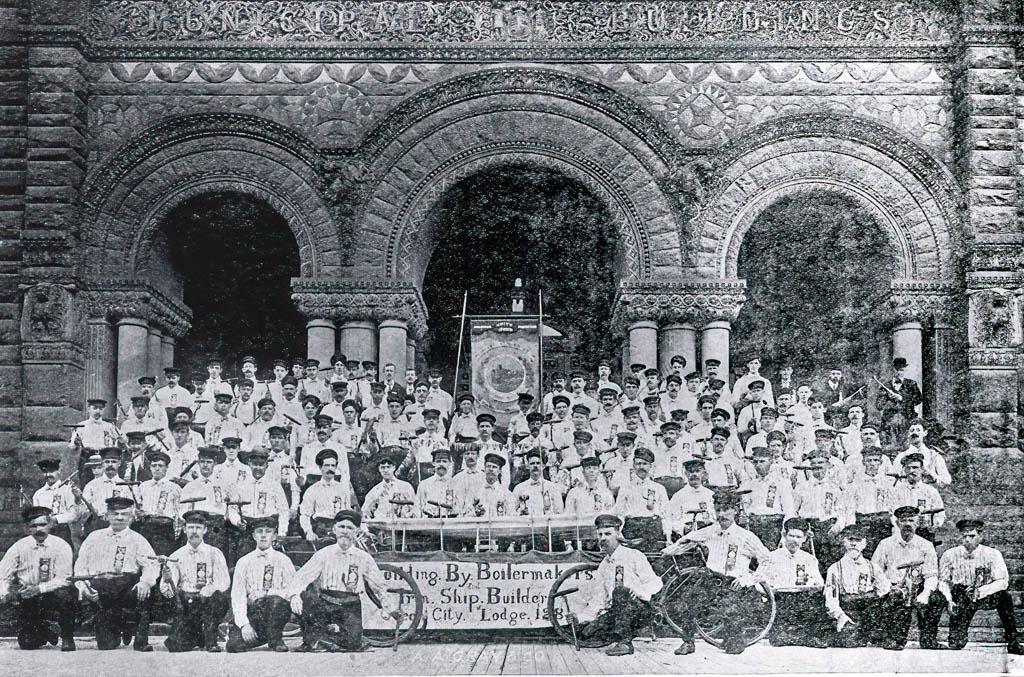While most people today recognize Labor Day as the official end of summer, celebrating with burgers on the grill and a Frisbee flying overhead, the holiday’s beginnings were solely focused on working class solidarity. In the late 1800s, workers had little power. It was the wealthy business owners of the Gilded Age that held authority. While some workers’ salaries grew during the period, many were left in poverty working long hours for little pay. Child slavery and indentured child servitude existed openly as they had since the advent of the Industrial Revolution up to the 1930s. And safe working conditions weren’t the norm.
The New York City Central Labor Union—an organization like today’s AFL-CIO—was behind the first Labor Day. Peter McGuire, founder of the United Brotherhood of Carpenters, was one of the organizers of an eight-hour parade of workers in New York City. The aim was to unify workers and codify the eight-hour workday.
Unions at the time were fractured and existed in small, territorial groups as did Boilermakers during this period. Unions were comparatively weak and lacked unification. The organizers hoped a public show of power and unity would affect change in a society where the rich had all political and market power.
The Central Labor Union had a problem, though: Workers were not given time off for the initial holiday. So the union called for a general strike and many heeded the call and left their jobs for the day. On Sept. 5, 1882, an estimated 25,000 workers marched down Fifth Avenue in New York City to celebrate the first Labor Day. Bands played as workers marched, ending in a picnic in Wendel’s Elm Park, the city’s largest green space at the time.
A mere five years later, Oregon made Labor Day a holiday. When other states followed, eventually that one general strike in New York City led to a national holiday honoring the working class.
Joe Hill, a songwriter, itinerant laborer, and union organizer of the period penned lyrics to a song “Workers of the World, Awaken!” Its lyrics still ring true today.
“If the workers take a notion, they can stop all speeding trains, every ship upon the ocean they can tie with mighty chains. Every wheel in the creation, every mine and every mill, fleets and armies of the nation, will at their command stand still.
Join the union, fellow workers, men and women side by side. We will crush the greedy shirkers like a sweeping, surging tide. For united we are standing but divided we will fall. Let this be our understanding, ‘All for one and one for all.’”
Read the full lyrics for “Workers of the World, Awaken!” at the Zinn Education Project: www.zinnedproject.org/materials/workers-of-the-world-awaken.

